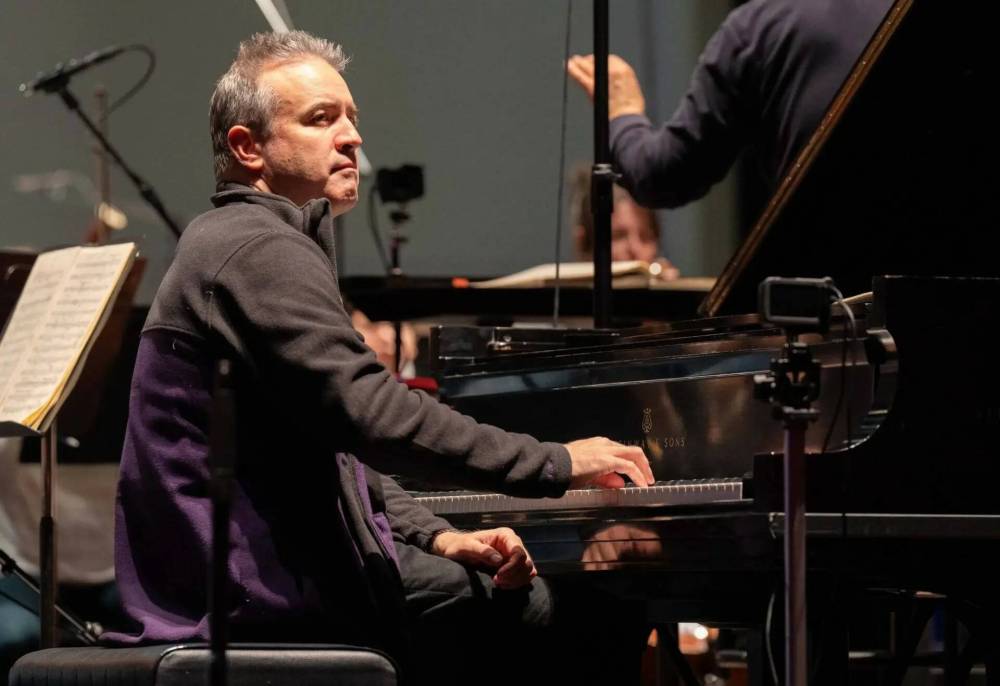WSO’s opening weekend features Russian pianist no stranger to musical marathons
Advertisement
Read this article for free:
or
Already have an account? Log in here »
To continue reading, please subscribe:
Monthly Digital Subscription
$1 per week for 24 weeks*
- Enjoy unlimited reading on winnipegfreepress.com
- Read the E-Edition, our digital replica newspaper
- Access News Break, our award-winning app
- Play interactive puzzles
*Billed as $4.00 plus GST every four weeks. After 24 weeks, price increases to the regular rate of $19.00 plus GST every four weeks. Offer available to new and qualified returning subscribers only. Cancel any time.
Monthly Digital Subscription
$4.75/week*
- Enjoy unlimited reading on winnipegfreepress.com
- Read the E-Edition, our digital replica newspaper
- Access News Break, our award-winning app
- Play interactive puzzles
*Billed as $19 plus GST every four weeks. Cancel any time.
To continue reading, please subscribe:
Add Winnipeg Free Press access to your Brandon Sun subscription for only
$1 for the first 4 weeks*
*$1 will be added to your next bill. After your 4 weeks access is complete your rate will increase by $0.00 a X percent off the regular rate.
Read unlimited articles for free today:
or
Already have an account? Log in here »
The analogy is a familiar one; the classical soloist as athlete.
Beauty may be in the eye of the beholder, but a wrong note is a wrong note, and to play thousands of right ones for as many spectators requires the sort of physicality and training that we associate with world-class athletes.
World-class soloists also, often, cut their teeth in international competitions; heated events for live audiences catering to young virtuosos — where careers can be catapulted by a fraction of a point.

MARK RASH PHOTO
Pianist Alexei Volodin playing with the WSO in 2023.
As winner of the prestigious Concours Géza Anda in 2003, Russian pianist Alexei Volodin (now in his late 40s), knows all about this. And if he were an athlete, it seems he’d be a marathon runner.
“I did these kinds of things, mostly when I was younger!” he says of his March 2020 WSO debut, when he performed all five Beethoven piano concertos within 24 hours.
Each piece runs about 30 to 40 minutes; a back-of-the-envelope calculation suggests that’s about 30,000 notes in total.
“I can tell you that the music itself inspires you so much already onstage, you are really not thinking about the quantity of notes, just somehow it tracks,” he says.
Three years later, Volodin was back for a half-marathon of sorts — back-to-back concerts of Rachmaninoff’s works.
This weekend, which marks the WSO’s launch of its 2025-26 season, he performs Tchaikovsky’s Piano Concerto No. 1 Saturday evening, and his Piano Concerto No. 2 Sunday afternoon.
The first concert features Johannes Brahms’ monumental Symphony No. 4 and Canadian conductor-composer Samy Moussa’s Elysium, while the matinee features just Brahms’ work alongside the Tchaikovsky.
WSO’s opening weekend concerts are Karl Stobbe’s first as the WSO’s new concertmaster, and Piano Concerto No. 2’s second movement should really let him and the WSO’s newly appointed principal cellist Elie Boissinot, strut their stuff alongside the piano.
Tchaikovsky wrote three piano concertos in total, and No. 1 has one of the most famous openings in classical music, with its epic block chords and brass fanfare. Nimble acrobatics on the piano soon follow, but the opening is pure romantic populism — tuneful, gloriously unsubtle, hook-like even.
No. 3, while rich and notably modern, is generally considered the weakest of the trilogy — The Godfather Part III, if you will. (Its perceived flaws surely owe something to its being written in the last years of Tchaikovsky’s life and the fact it was left incomplete.)
No. 2 is the stellar sequel, arguably equal to No 1 in brilliance, but not usually where listeners start.
“In my opinion, Tchaikovsky’s second piano concerto is as great as the first one, even though it’s less popular, and I hope (audiences) will not only enjoy it, but I hope they will find their own relationship with this piece and it will become as dear to them as No. 1,” says Volodin.
While North American and British orchestras at large no longer seem to be limiting the performance of 19th-century Russian greats such as Rachmaninoff and Tchaikovsky, as some did in the immediate aftermath of Russia’s 2022 invasion, a boycott persists in other parts of the world.
Volodin, who denounces Putin’s invasion of Ukraine, understands the unease that still surrounds the performance of Russian music in some parts of Europe — factoring this into his repertoire choices.
“If you think of countries which are neighbouring Russia, like Baltic countries or Poland, the ban is still there. And I do perform in those countries sometimes, but I am not playing Russian music,” says Volodin.
While Volodin now lives in Spain, he’s worked across the globe with compatriot and WSO conductor Daniel Raiskin for at least 15 years, according to the pianist. It’s through Raiskin that he’s come to know Winnipeg.
“I think it’s very important to come back to a city, so you feel you have somehow more personal attitudes. I think you can be more open,” he says.
“Winnipeg is a wonderful audience. It’s a special pleasure for me to come back and to play more music for them.”
conrad.sweatman@freepress.mb.ca

Conrad Sweatman is an arts reporter and feature writer. Before joining the Free Press full-time in 2024, he worked in the U.K. and Canadian cultural sectors, freelanced for outlets including The Walrus, VICE and Prairie Fire. Read more about Conrad.
Our newsroom depends on a growing audience of readers to power our journalism. If you are not a paid reader, please consider becoming a subscriber.
Our newsroom depends on its audience of readers to power our journalism. Thank you for your support.
History
Updated on Sunday, September 28, 2025 9:51 AM CDT: Corrects photo caption


